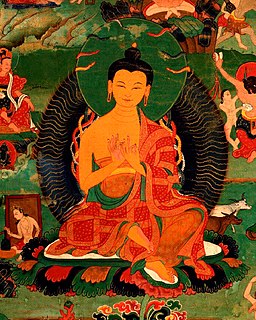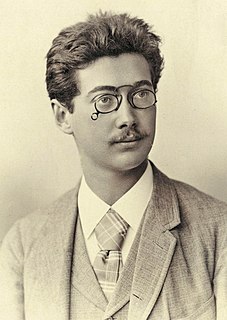A Quote by Nagarjuna
Things derive their being and nature by mutual dependence and are nothing in themselves.
Quote Topics
Related Quotes
Nothing is more human than for man to desire naturally things impossible to his nature. It is, indeed, the property of a nature which is not closed up in matter like the nature of physical things, but which is intellectual or infinitized by the spirit. It is the property of a metaphysical nature. Such desires reach for the infinite, because the intellect thirsts for being and being is infinite.
the society which projects and undertakes the technological transformation of nature alters the base of domination by gradually replacing personal dependence (of the slave on the master, the serf on the lord of the manor, the lord on the donor of the fief, etc.) with dependence on the "objective order of things" (on economic laws, the market etc.).
Nature seems to have taken a particular care to disseminate her blessings among the different regions of the world, with an eye to their mutual intercourse and traffic among mankind, that the nations of the several parts of the globe might have a kind of dependence upon one another and be united together by their common interest.
As it is the nature of a kite to devour little birds, so it is the nature of some minds to insult and tyrannize over little people; this being the means which they use to recompense themselves for their extreme servility and condescension to their superiors; for nothing can be more reasonable than that slaves and flatterers should exact the same taxes on all below them which they themselves pay to all above them.
Surely nothing is more reproachful to a being endowed with reason, than to resign its powers to the influence of the air, and live in dependence on the weather and the wind, for the only blessings which nature has put into our power, tranquillity and benevolence. To look up to the sky for the nutriment of our bodies, is the condition of nature; to call upon the sun for peace and gaiety, or deprecate the clouds lest sorrow should overwhelm us, is the cowardice of idleness, and the idolatry of folly.
For nature is not merely present , but is implanted within things, distant from none... And while the outer face of things changeth so greatly, there flourisheth the origin of being more intimately within all things than they themselves. The fount of all kinds, Mind , God , Being, One, Truth , Destiny , Reason , Order .






































